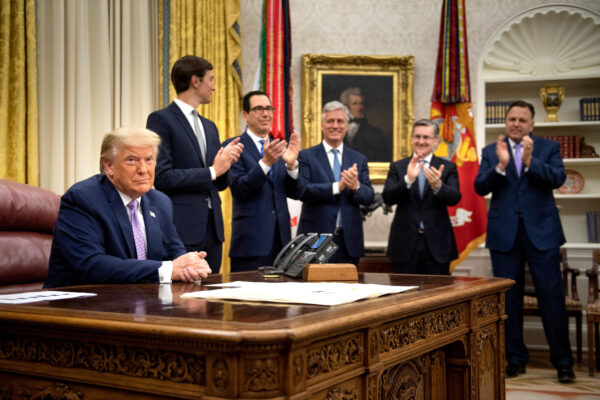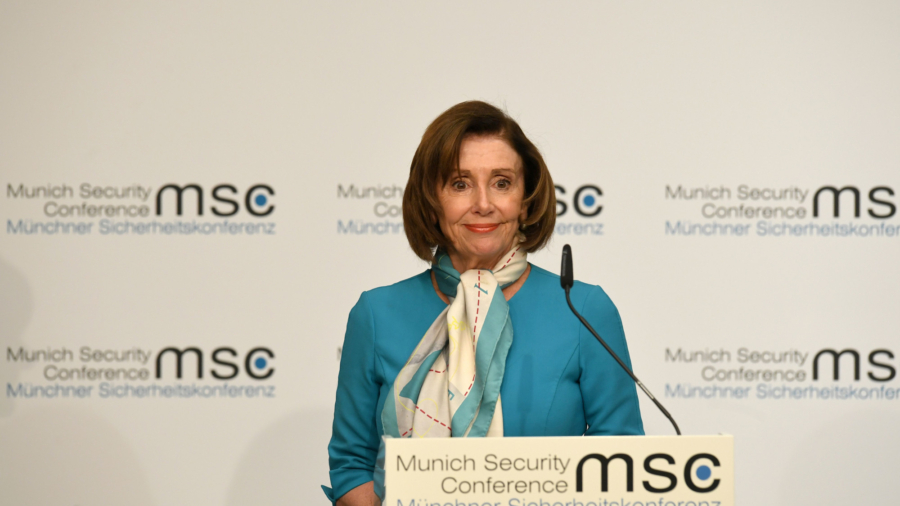House Speaker Nancy Pelosi (D-Calif.) and Treasury Secretary Steve Mnuchin continue to push for a bipartisan deal on COVID-19 stimulus, but the top Democrat said that negotiations have persistently exposed differences between the two sides.
Both Mnuchin and Pelosi had a conversation Tuesday after negotiations stalled last month and legislators are slated to return to Capitol Hill in the coming days following a several week-long break.
In a statement in front of a House panel, Mnuchin stressed the urgency of passing a new stimulus bill to bolster small businesses while calling on the governors of some states to reopen their economies in the wake of the CCP (Chinese Communist Party) virus pandemic.
On Tuesday evening, Pelosi said in a statement that her phone call with Mnuchin “made clear that Democrats and the White House continue to have serious differences understanding the gravity of the situation that America’s working families are facing.”
She added: “House and Senate Democrats have repeatedly offered to compromise. Over a month ago, we said that we would be willing to cut a trillion dollars from the Heroes Act if the White House would add one trillion to the Senate bill.”
Democrats in the House passed the $3.4 trillion HEROES Act in May, which Senate Republicans said would be “dead-on-arrival” and contained too many socialist provisions unrelated to the CCP virus pandemic. Other Republicans and White House officials also argued that the bill would add too much to the federal deficit.

Pelosi reiterated in her statement that Democrats are “willing to go down” about $1.2 trillion dollars to a minimum of $2.2 trillion, mirroring the sum of the CARES Act passed in March.
But Mnuchin, in front of the House panel, said he does “not support $2.2 trillion.” Republicans previously unveiled a $1 trillion bill in late July that notably omits federal funding to state and local governments.
The House speaker, however, suggested that the smaller proposals from Republicans and the White House don’t address key issues plaguing the country.
“Does the White House think that America’s working families are not worth the investment needed to defeat the virus and the accompanying economic crisis? Or would they rather spend the money another way?” she asked.
Democrats and Republicans agree that more funding is needed for small business loans, enhanced unemployment benefits, and direct stimulus payments to households, said Mnuchin.
As the impasse continues, the White House has used its executive power to provide various benefits to workers and families who suffered setbacks during the pandemic. On Tuesday, anti-eviction measures were laid out by the Trump administration allowing for tenants to seek eviction relief if they earn less than $99,000 per year or $198,000 for a couple filing their taxes jointly. Those people have to also declare that they would become homeless or forced to move to congregate housing if they are evicted. They will also have to show they’ve taken the steps to seek government assistance.


